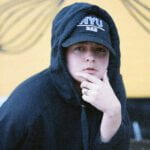Queer Game Design
This thesis artistic project was developed through the desire to meet a need in the queer community. In its development, it was founded through the discovery of queer game studies. Before exposure to queer game studies and trans game studies as a field, the seeds of this artistic project had no soil.
Queer Game Design scholars pave a pathway through lived-in research, playtests, self-made projects, and experience, but they also cast a light on the compulsory heteronormative obstructions, gatekeeping, and obstacles in the way of queer communities finding game design or digital space.
There is a major bias for me as a creator and researcher in queer game communities: though I am not a gaymer, I use the tools offered by scholars and my own pieces of media to begin paving a path toward accessible queer virtual community spaces, with or without a gaming background.

Kat Scott (they/them) got sober in St. Louis, Missouri, in 2016 with the help of workers at Mokabe’s Coffeehouse, a queer family-run coffee shop. The shop was not open to the public for nearly two years during the pandemic; they only did carry out. Scott’s project is an artistic imagining of what this magical space could be virtually and uses portals to transport us into various conceptions of ‘queer space.’ Its target demographic includes any iteration of the following queer groups: younger, older, teens, closeted, recovering, organizing, community, kink, hobbyists, gaymers, etc. What you will see in the gallery space will be abstractions and imaginings through interviews, research, and interactive narrative of what the play-through of the space will be, along with pieces of background research from scholars in queer game design like Anna Anthropy and Bo Ruberg. Scott is not a gaymer, so the piece is more meant to be a guiding hand into a virtual space where queer people can interact, recover, and identify together outside of Big Game. It is also not a Metaverse business pitch. This work is made by queer people, for queer people, and is best described to strangers as Gay Club Penguin.
You must be logged in to post a comment.